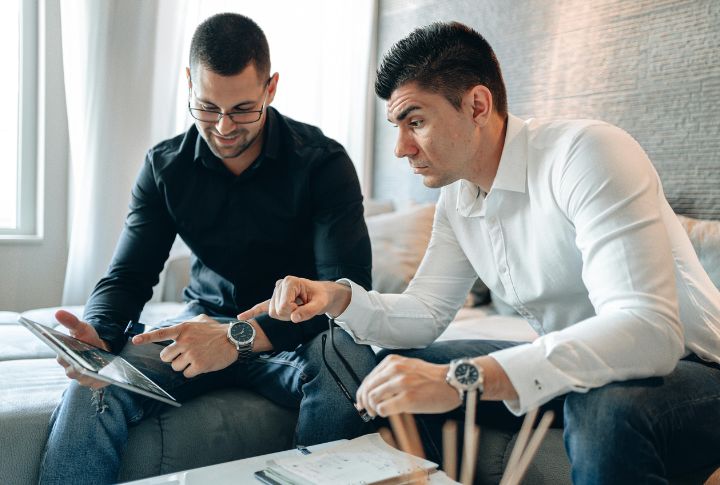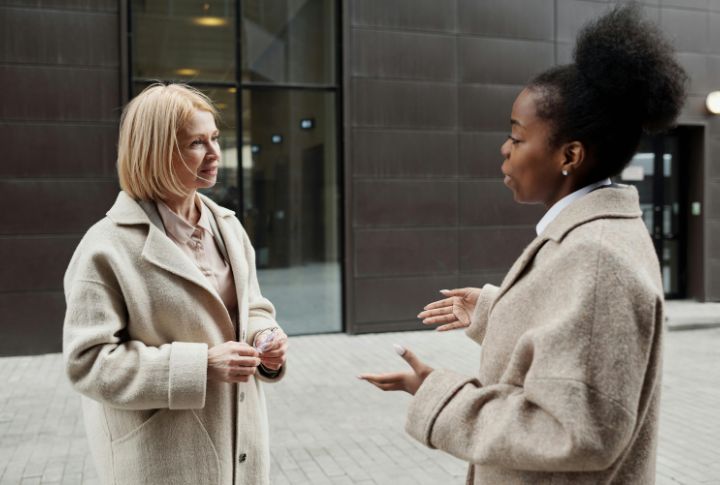
Language is always evolving, and staying updated isn’t just about being trendy but also about being respectful and inclusive. Here are some common sayings and phrases that have raised eyebrows in more progressive circles and why they’re problematic.
“Hold Down the Fort”

Ever wonder why “Hold Down the Fort” feels a bit off? This phrase stems from military jargon but carries the weight of colonial history, hinting at the occupation of Indigenous lands. A better alternative would be “Keep an eye on things.” It is straightforward and avoids any uncomfortable historical baggage.
“Ladies and Gentlemen”

When addressing a crowd, phrases like “Ladies and Gentlemen” might seem polite, but they exclude those who don’t fit within the gender binary. Try using “Everyone” or “Folks.” These options are inclusive, friendly, and modern.
“Pull Yourself Up by Your Bootstraps”

The idea behind “pull yourself up by your bootstraps” is misleading, suggesting success is purely about individual effort while ignoring systemic barriers. A more supportive phrase? Consider, “Let’s find a solution together.” This acknowledges that sometimes, teamwork makes the dream work.
“Pow-Wow”

Using the term “Pow-Wow” for a casual meeting is inappropriate. It is also a misappropriation of a term with deep cultural and spiritual significance for Indigenous peoples.
“Tomboy”

To call a girl a “tomboy” for enjoying “boyish” activities perpetuates outdated gender stereotypes. Celebrate their interests without the labels by saying, “She loves playing soccer,” or whatever the activity may be.
“Exotic”

“Exotic” may seem like a compliment, but in fact, it often exoticizes and otherizes people and cultures. Opt for words like “unique” or “captivating” instead. They convey admiration without reducing someone to an exotic novelty.
“Merry Christmas”

Not everyone celebrates Christmas, so defaulting to this greeting can feel exclusionary. “Happy Holidays” covers all bases and ensures everyone feels included during the festive season.
“Boys Will Be Boys”

The phrase “boys will be boys” excuses unacceptable behavior by attributing it to gender. A more equitable approach? Say, “Kids will be kids,” or better yet, address the behavior directly. Holding everyone to the same standard is key.
“Normal”

If you use the word “normal,” it implies that everything else is abnormal. Swap it out for “typical” or “standard.” This small change makes a big difference in fostering inclusivity.
“I Don’t See Color”

Claiming not to see color can dismiss the real experiences and struggles of people of color. Acknowledge and appreciate diversity with, “I appreciate all backgrounds.” It’s a way to show you value everyone’s unique identity.
“Bless You”

Some people don’t share the religious context of “bless you.” Try “Gesundheit” (German for “health”) or simply “Take care.” Both options are thoughtful and non-religious.
“Peanut Gallery”

Originally, the “peanut gallery” referred to the cheapest, often segregated, seats in a theater. To avoid the classist and racist undertones, say, “Those in the back,” if you must reference seating at all.
“Blind Leading the Blind”

This phrase uses disability as a metaphor for incompetence, which can be offensive. Instead, try “uninformed leading the uninformed.” It’s sensitive and gets the point across.
“Drink the Kool-Aid”

Referencing the tragic Jonestown Massacre, “Drink the Kool-Aid” trivializes a horrific event. A more appropriate phrase would be “blindly follow.” It’s just as impactful without the grim connotations.
“Too Many Chiefs, Not Enough Indians”

Offensive to Native Americans, this phrase can easily be replaced with “Too many leaders, not enough workers.” It conveys the same idea without cultural insensitivity.


Comments
Loading…